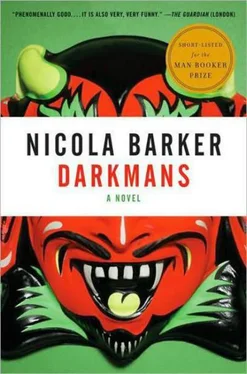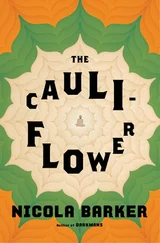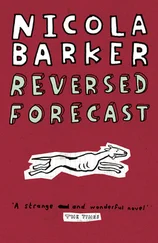‘Were you very young?’
‘Sure. Young. He was hero,’ Gaffar informed him haughtily. ’He died in the service of his country.’
‘Ah, now I get you…’ Beede finally caught on. ‘He was a soldier with the PKK?’
Gaffar looked horrified. ’A terrorist? Never! He was a proud Turkish citizen. He died on guard service in Silopi. He worked for the local Kurdish lord. He stepped on a landmine. I was three years old. My mother was pregnant with my brother. When I saw the body there were no legs left, no groin. They’d stuffed a spare pair of trousers with straw to protect our feelings. I saw it poking out at the ankles and at the waist…’ he shrugged. ’That’s all I really remember.’
‘This was in Silopi?’ Beede asked. ‘Is that where your family hail from, originally?’
‘No. I was bor Silopi. My mother family from Marlin. My father…’ He shrugged, uneasily.
‘Where?’
‘Sinjar.’
‘Sinjar? That sounds familiar… Sinjar …’
Beede considered it for a moment. ‘Is Sinjar actually in Turkey?’
‘Sure…’ Gaffar nodded, unconvincingly.
Beede frowned. Gaffar took off his jacket. He hung it over the back of his chair. He seemed ill at ease.
‘Nice jacket,’ Beede said.
‘New leather ,’ Gaffar grinned, half-turning and stroking the hide, patently relieved at the change of subject.
‘Did Kane buy it for you?’
‘Kane? No. Is Mrs Broad.’
‘Pardon?’
‘Kelly mother. Dina. Mrs Dina Broad.’
Beede looked confused. ‘Dina? Dina Broad? She bought you a jacket?’
‘Sure.’
Gaffar seemed completely unfazed by the idea.
‘Dina Broad? But why on earth would she do that?’
‘We go for shop. We two. She buy.’
He shrugged.
‘She took you out shopping ? Dina Broad ?’
‘Sure. Whas problem? We go. Taxi. Shop-shop. Is my idea. Shop for Dina. Shop for Gaffar.’
‘And this is in exchange for…?’
‘Pard me?’
‘For drugs, perchance?’
‘Drugs?!’
Gaffar leaned back in his chair, surprised. ‘For what is this?’ he asked, almost indignant. ‘For what is all this drugs-drugs? You’re a man obsessed! You…Kelly Broad… You’re worse than each other! ’
‘Then what else?’ Beede demanded.
Gaffar scowled. ‘What else ? I walk dog. I do hoover. Massage. Even just little-bit chit-chat. Is good. Is enough.’
‘You mean you’re working as a kind of…’ Beede frowned, ‘ gigolo cum…’ he paused ‘…cum au pair ?’
‘I work for Kane,’ Gaffar explained irritably. ‘This Kane client. He want for client being happy . He send Gaffar. Gaffar is bring happy…’
Pause
‘…Without all this drugs you so crazy about.’
‘Did you hang a bell on the cat?’ Beede suddenly asked.
‘Pard?’
‘The cat. The Siamese. Did you hang a bell on him?’
‘Bell?’
‘Ding! Ding! Bell. On a collar. Around his neck.’
‘Bell?’
‘Yes.’
Beede felt his shoulder tensing up again. He put a hand to it.
‘No. No bell.’
‘Oh.’
‘What for I hang “bel”?’ Gaffar scoffed.
‘I have no idea.’
‘Did you hang bell?’
‘Of course not. If I’d hung bell… the bell — then I wouldn’t be asking you about it, would I?’
‘Okay.’
Gaffar scratched his head and then looked away, as if embarrassed on Beede’s behalf–
Bell?!
Beede took a sip of his soup. A member of staff approached them clutching a carrier. ‘I think this is everything,’ she said. ‘We took the precaution of wrapping up the greens in a double bag…’
‘Great. That was very kind. Thank you.’
Beede took the carrier from her. She showed him the till receipt. ‘Right. Of course ,’ he muttered. ‘Do you have any cash, Gaffar?’
Beede peered over at the Kurd. Gaffar was engrossed in checking the texts on his new mobile phone.
‘Gaffar?’
Gaffar glanced up. ‘Cash? Sure.’
He delved into the pocket of his new, leather jacket, withdrew an indecently fat wad of mulberry-coloured notes, licked his thumb and peeled one off.
‘Lid…Rug…Drugs… Bell …’ he murmured, shaking his head as he passed it over. ’You need to get out more, old fella.’
‘So who’s it by?’
As soon as he’d finished eating he’d been drawn back to the painting.
‘That’s the million dollar question. Medieval artists rarely — if ever — put a signature to their work. It’s meant to be from the Cologne School…’
She was tidying away the remains of a basic lunch they’d just shared (water biscuits, blue Brie, cherry tomatoes and a jar of huge, home-made pickled onions, bobbing around like apples in a rich and luxuriant, dark malt vinegar).
‘German?’
‘Yes. Although obviously Germany — as we know it now — didn’t actually exist back then…’
‘Obviously,’ Kane parroted.
‘I’m hoping it’s a Stephan Lochner,’ she continued. ‘He was a cut above most of his contemporaries — very heavily influenced by the Flemish painters of the time…’
‘Which time?’
‘1430, 1440. He died of the plague on Christmas Day, 1451.’
She went over to her desk and opened up a large scrapbook.
‘Lochner is best known for his Adoration of the Magi which takes pride of place in the cathedral in Cologne…’
She turned the pages of the book until she reached a fine, colour reproduction of the painting in question, surrounded by a plethora of comments and observations written in a dark, blue ink.
‘Come and look.’
Kane strolled over. It was a beautiful painting; a triptych. In the middle panel three wise men made offerings to the baby Christ.
‘This is Saint Gereon,’ she pointed to one of the side panels, ‘and this is Saint Ursula…’ she pointed to the other. ‘They’ve augmented The Adoration with them because the two saints have a special relevance to Cologne. They were both martyred there.’
‘Do you like it?’ Kane wondered, detecting an element of fastidiousness in her tone.
‘But of course,’ she exclaimed, ‘it’s magnificent, don’t you think? Finely observed, meticulously finished. A masterpiece of its time — of any time — although not, I’ll admit, what you might call the world’s most “emotionally involving” work of art.’
Kane didn’t see fit to comment.
She turned the page over. ‘What’s that?’
He pointed.
‘That’s a reproduction of The Paradise Garden by the Master of Frankfurt. He’s another contender, another candidate on my shortlist. He would’ve been one of Lochner’s contemporaries…’
Kane drew in closer. It was an exquisite little piece. A fairytale-style walled garden containing eight quaint figures. The Madonna (although she looked more like a princess than a religious figure) sat in the centre of the composition reading a book. Around her a group of servants and a child (he presumed the baby Christ) entertained themselves with a series of innocent (if somewhat mundane-seeming) pastimes.
‘Sweet, isn’t it?’ she said.
He shrugged.
‘Although these works are never as straightforward as they look. In medieval art the messages are all encoded …’
He glanced up, suddenly intrigued. ‘How d’you mean?’ ‘Well each figure, each colour, each bird and plant resonates at a symbolic level as well as at a physical one. An important symptom of what I like to call the “Medieval Disease” was that everything generally represented something else. People weren’t encouraged to conceptualise, to question, to range freely. They were boxed in by Christian doctrine. They couldn’t think in abstract forms. Everything was self-referential. It was an intensely restrictive system of thought…’
Читать дальше
Конец ознакомительного отрывка
Купить книгу












